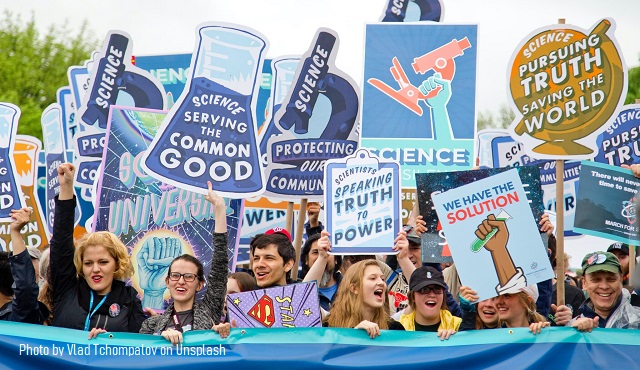Why Smart People Get Suckered By ‘Trust the Science’

Has there ever been a time in history when the public has been asked to “trust the science” more?
This week the the Intergovernmental Panel on Climate Change released a report which UN Secretary General António Guterres described as “a code red for humanity”. It predicts catastrophic climate change unless nations make draconian cuts in greenhouse gas emissions. Nearly a hundred scientists were listed as the authors of the report.
At the same time, most of the world is being advised to take vaccines against Covid-19 and submit to onerous lockdowns and social distancing. Epidemiologists announce guidelines flanked by politicians.
Critics of climate change science and Covid-19 vaccines are fighting back with their own studies. Some is science; some is pseudoscience. US President Joe Biden has savagely criticised social media companies for allowing “fake news” to reinforce anti-vaxxers. “They’re killing people,” he said last month.
Fake news is putting the mantra of “trust the science” through a fearful stress test. Is it possible to create a vaccine against this blizzard of misinformation?
Some social science researchers have experimented with “cognitive vaccines” in the hope of getting people to examine the evidence and make rational decisions, rather than relying on advice from their cousins or Instagram influencers.
But says an article in the leading science journal PNAS, “researchers have found that this is not as simple as providing people with correct information and hoping it will supplant false beliefs”.
One disturbing feature of fake news is that a willingness to “trust the science” does not necessarily inoculate people against the allure of pseudoscience.
In a recent article in the Journal of Experimental Social Psychology, researchers from the University of Illinois Urbana-Champaign found that the mantra “trust the science” does not work.
Paradoxically, they found that people who trusted science could be more vulnerable to being duped:
We identify two critical determinants of vulnerability to pseudoscience. First, participants who trust science are more likely to believe and disseminate false claims that contain scientific references than false claims that do not.
Second, reminding participants of the value of critical evaluation reduces belief in false claims, whereas reminders of the value of trusting science do not. We conclude that trust in science, although desirable in many ways, makes people vulnerable to pseudoscience.
As the researchers lamented, this is “paradoxical”. People who trust science, who are presumably reasonably well educated, are supposed to spurn “fake news”. However, they found that “the mere presence of scientific labels in the article facilitated belief in the misinformation and increased the probability of dissemination”. In other words, a gloss of scientific credibility actually increased people’s vulnerability to pseudoscience.
And this seemed to be true even for many people with higher degrees.
The authors of the study conclude that public officials need to urge people to be curious and critical – to think for themselves, in other words – rather than swallow the recommendations of scientists (or pseudoscientists) uncritically.
As the astronomer and popular science writer Carl Sagan said: “One of the great commandments of science is, ‘Mistrust arguments from authority.’ … Too many such arguments have proved too painfully wrong. Authorities must prove their contentions like everybody else.”
COLUMN BY


I liked thia very much. I struggle to understand epidemiology, and climatology is beyond my understanding. But I do understand the theory of chaos, and the difficulty of predicting the behavior of complex causal systems, And I also understand the will to power and status that (despite Marx) is the driving power of human history, (Wealth is important as a means to these things,.)